Blog:
Niche Perspective: Publisher forum February 29th examines revenue, collaboration and syndication

On Wednesday, February 29th, Day Two of the JA forum on sustainable journalism highlights the practice of niche publishing, one name for specializing in a particular subject matter or a certain type of reporting. Their experiences reflect many common issues local publishers know well.
This is a forum for publishers, businesspeople, and others interested in increasing the revenue of digital news sites. It’s a moderated online conversation, designed as “call and response” – we’ll hear two publishers’ stories, add reflections from a couple of business experts, and invite you to jump in.
The Day Two focus: publishers specialized by subject or niche sites serving an audience not tied to a neighborhood beat. How do you create and capitalize on something unique? Can more general news sites support specialized reporting? How can one niche site collaborate with others around the same issue in a different town?
Becoming a businessperson
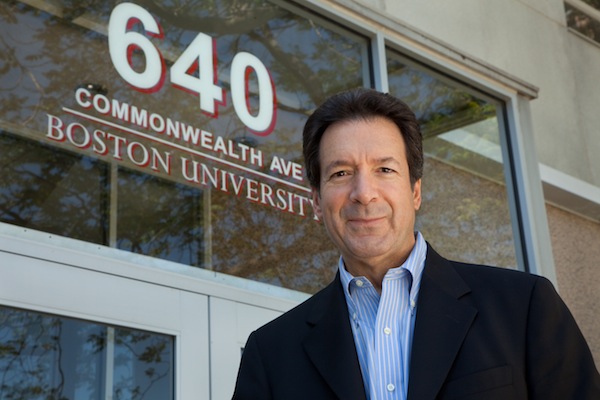
NECIR co-director Joe Bergantino says training brings in more money than content, and could grow. “We’re only scraping the tip of the iceberg with training.”
Joe Bergantino ran investigative news teams for decades. Now he runs a small journalism business. Bergantino co-directs the New England Center for Investigative Reporting, housed at Boston University. Like many startup publishers, Bergantino has learned a lot since opening NECIR three years ago.
“I didn’t want to be a manager, focused on bringing in revenue. I wanted to do investigative reporting,” Bergantino says. “But it has been fulfilling, on some level, to be able to figure this out.”
He’s figured out it’s smart to focus on unique advantages of the center. For example, he and co-director Maggie Mulvihill both brought strong reputations as award-winning investigative journalists. That helps sell content.
Being part of a university provides financial and in-kind support. Bergantino says in this case, the university covers about 20% of the center’s half-million dollar annual budget. In addition, the university name boosts the appeal of NECIR’s courses, aimed at the next generation of investigative reporters.
“Training has brought in about $130,000 a year,” Bergantino says. “Being at a world class university with a brand name, in a city where people like to come, has helped make our training attractive.”
Selling stories brought the center about $80,000 last year, Bergantino says. NECIR recently signed an agreement to provide exclusive content with public radio station WBUR. Bergantino considers this deal an experiment. “They were willing to pay the equivalent of what all other outlets together would pay for one story. That makes sense,” he says. “We’re looking at other exclusive deals that would allow us to go more in-depth, and not have to manage a lot of freelancers.”
Plenty of publishers are thinking outside the box to find sustainable sources of revenue. Last year, Bergantino asked this on a Poynter blog:
Will nonprofit centers be able to come up with a sustainable business model that ensures their long-term survival or will they, one by one, shut down because of lack of funding?”
Bergantino is imagining a separate news site that would support unrelated investigative work, or a research arm to crunch data for private clients. Anything, he says, would have to pass an ethics sniff test. As far as foundations go, Bergantino is grateful for the support the center has received, but celebrated when more than half the center’s revenue came in from other sources. “We’ll always need multiple sources of income,” he says. “But that was a key moment in our growth.”
WHAT JOE BERGANTINO BRINGS TO THIS CONVERSATION:
- Experience running a news organization housed in a larger organization, in this case a university.
- Insight into the business of news training.
- Experience striking exclusive content deals.
- A desire to find a way to sell stories nationally.
WHAT HE WANTS FROM IT:
- More ideas for creating more revenue streams.
- Advice on increasing – and monetizing – web traffic with new content monthly.
- The possibility of regular opportunities to consult with peer publishers.
Bergantino will help us kick off the conversation on Day Two of the sustainable business forum, Wednesday, February 29, from 2 – 3:30 PM, along with Diane Lund. Lund has landed where she is today thanks to a freelance chance, a borrowed business plan and surviving a near-fatal car crash in Ethiopia.
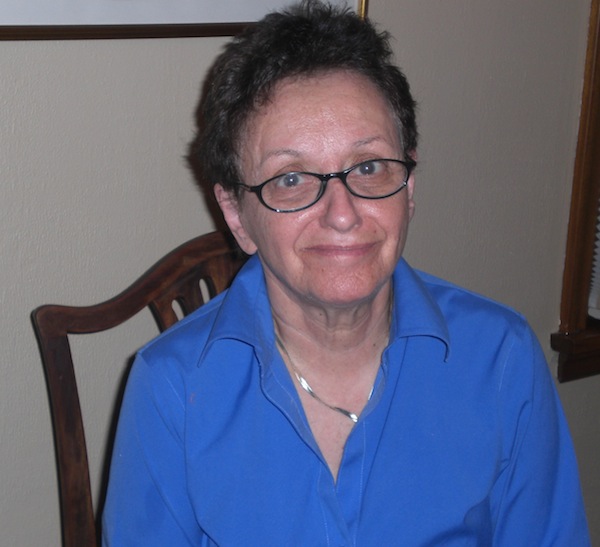
Diane Lund won’t take ads for The Lund Report, which covers Oregon’s health care industry. “I got a contribution of $25 and a really nice note. Where are the bigger checks, and what do they come with?”
She is founder and publisher of The Lund Report, a three-year-old online news site dedicated to covering Oregon’s health care industry.
More than twenty years ago, she landed a gig freelancing for a medical society. The opportunity to specialize her journalism appealed, and her expertise in health policy grew rapidly. In 1990, Lund started a non-profit, The Oregon Health Forum. At its height, the organization sent an industry watchdog report to over 1000 paying subscribers and hosted well-attended monthly events to discuss health care issues.
That subscriber/event mix might be a business formula that would still be successful today. However, the Health Forum folded three years ago after a revenue shortfall. Lund had already left, in 2006, amid a dispute with the organization’s board.
The Lund Report takes on the same territory but in a different way. Content is free. There are neither ads nor sponsorships. Both points are vital to Lund. “Advertising, you start taking it and how large a news hole is it going to fill?” she says. “I’m a true blood journalist and I don’t believe in advertising.” And why give specialized content away? “We want to reach the average consumer,” she says. “This is really, really important.”
The Lund Report has foundation support and receives community donations. But Lund is having trouble making this setup work. The revenue is enough to pay writers, but Lund hasn’t compensated herself in three years.
WHAT DIANE LUND BRINGS TO THIS CONVERSATION:
- Deep passion for watchdog journalism.
- Years of running events and premium subscriptions.
- Insight into working with non-profit boards.
WHAT SHE WANTS FROM IT:
- Advice on finding competent freelance writers who can handle deep policy, turn around stories quickly and don’t need a lot of editing.
- Ideas on turning community support into financial contributions.
- Insight into what to consider as she explores a subscription product or a premium news website.
You are invited to respond to the situations presented by these publishers and add your own experience and insights. Share ideas, challenge assumptions, pose questions you’d like addressed to surface best practices to help your bottom line.
We’ve asked a few folks to help start the response.
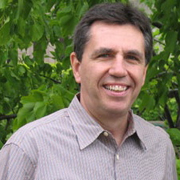
Angel investors helped Bob Buderi start Xconomy. “I wanted to build high quality, and I knew that meant lower traffic.”
Longtime journalist Bob Buderi got the tech news site Xconomy started with the help of angel investors. He saw an opportunity to cover technology well with a small network of reporters in key spots around the country. And he knew from the start he didn’t want to count clickthroughs.
“It’s extremely difficult to build a media business on display ads and traffic,” Buderi says. “We weren’t interested in that anyway. We set out to build a lower audience with really high quality content.”
Xconomy’s main source of income comes from sponsorships, both on site and for regular Xconomy events. Buderi prefers annual sponsorship agreements – there is time to troubleshoot if things go wrong, a small sales staff can focus on a few key relationships, and payments come in up front. Growth has changed the company’s challenges, Buderi says.
“You can’t double in size doing all the things you’ve done before. You have to let some things go when they’re not worth the time.”
Early on, he says, it might feel great to get a $2,000 deal, he says. But thriving means that might get too small to bother.
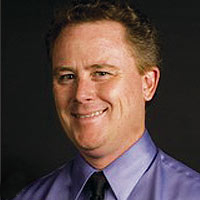
Rusty Coats brings 15 years of interactive news experience to Coats2Coats coaching and consulting. “Local news online is a hard business for anyone, and success means running it like a business, not a blogger or news entrepreneur.”
Still, success can come in any size, says business advisor Rusty Coats. A co-founder of Coats2Coats consulting, he has worked for years at the intersection of news, entrepreneurship and technology. Coats covered Silicon Valley, he built and managed news websites, and he led the Scripps interactive division as a VP. He says many of the new publishers he works with now are looking for help on the basics of running a business – writing budgets, managing staff, creating ad rate cards.
He is particularly interested in the potential of various social listening tools to change the way local news is reported.
“If I were starting a news operation, I would look at social listening tools with the same kind of urgency and interest as I would a police scanner,” he says. “My dream is using social media as a replacement for statehouse coverage.”
Also contributing to this conversation: Robert Cox, an early and widely-known media critic and blogger, now editor of Talk of the Sound; Susan Mernit, who as founder of Oakland Local has developed multiple revenue streams including training, underwriting, ads, donations, grants and events; David Hirschman, founder of Street Fight, focused on the business of hyperlocal, and Joe Michaud, business coach to media startups, including Super Camp participants.
This is an open forum welcoming those with interest or experience to participate. It’s simple to join! Just click on the “connect” button in the upper right hand corner of this site. Use your preferred social network to sign on and comment during the live discussion window, Wednesday February 29 from 2 – 3:30 PM Eastern. Forums are energized by practical questions, suggestions, tips, or frustrations. As inspired, weigh in on the stories you see here in the comment thread below. What’s your own revenue story? Help shape the conversation before it starts.





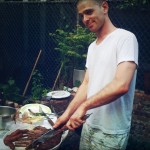







Weigh In: Remember to refresh often to see latest comments!
0 comments so far.